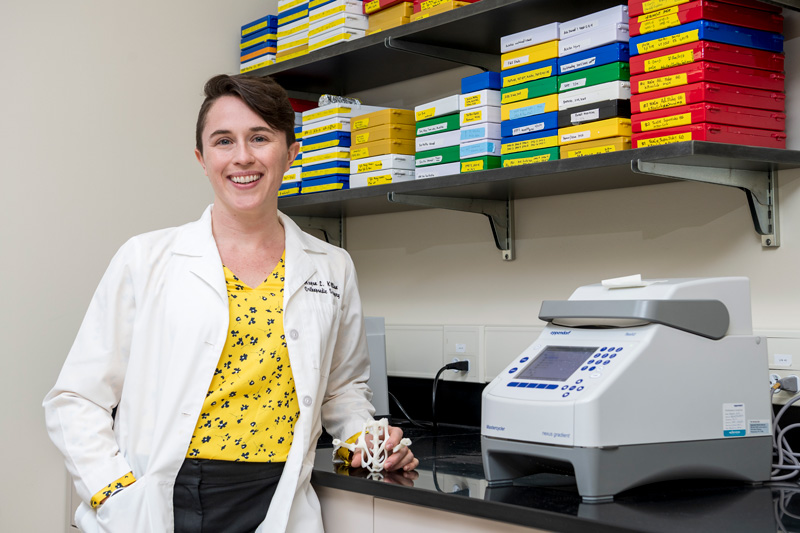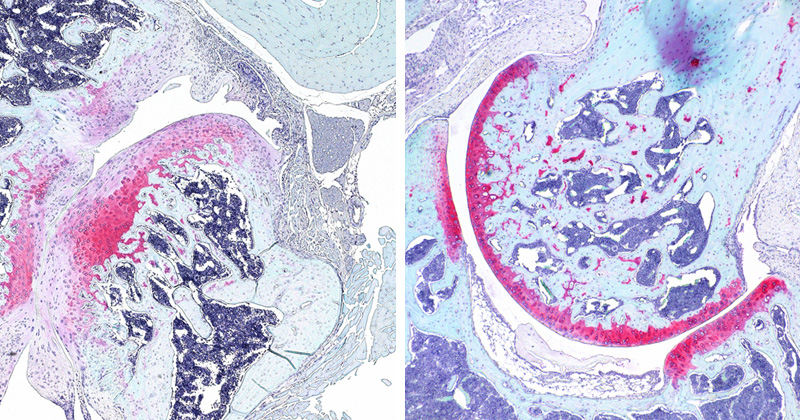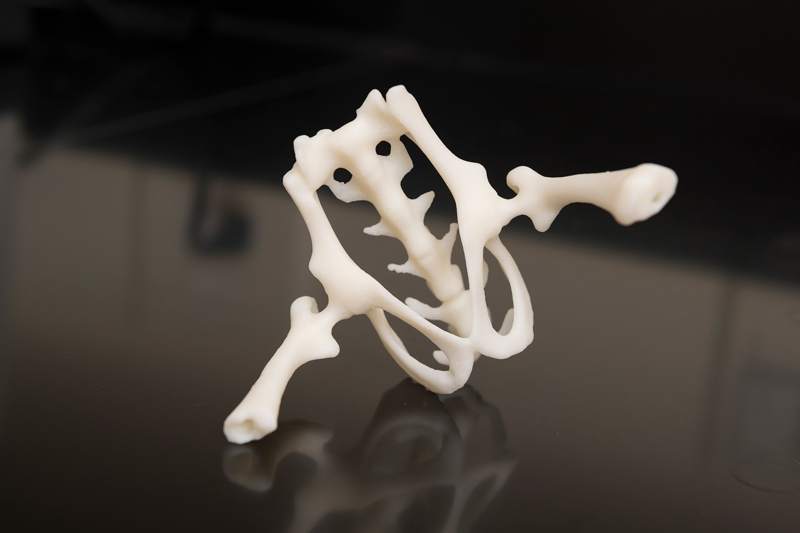


An emerging leader in orthopedics
Photos by Kathy F. Atkinson and courtesy of Megan Killian February 04, 2019
Biomedical engineering professor’s work aims to help people avoid hip pain
Megan Killian, University of Delaware assistant professor of biomedical engineering, has received the 2018 Early Career Award from the Journal of Orthopaedic Research. The award was to be presented to Killian on Monday, Feb. 4 at the 2019 Orthopaedic Research Society’s annual meeting.
Killian’s award-winning research centers on the study of a hip deformity called acetabular dysplasia, a commonly congenital disorder in which the hip socket isn’t deep enough to fit the top of the thigh bone. Killian and her colleagues developed a new model to study how structural and functional changes in the hip during adolescence may affect the development of osteoarthritis.
Acetabular dysplasia can damage hip cartilage and accelerate the onset of osteoarthritis even in young people. Hip dysplasia can also affect dancers and single-sport athletes, increasing their odds of hip pain early in life. Data suggest that an increasing number of Americans under age 50 are developing osteoarthritis of the hip, leading to aches and pains, restricted movement, and impaired quality of life.

While her work on acetabular dysplasia earned Killian the 2018 Early Career Award from the Journal of Orthopaedic Research, she studies more than the hip joint. Under a grant from the National Institutes of Health, Killian is doing research on muscle activity during the maturation and healing of the rotator cuff, the group of muscles and tissues that helps to keep the shoulder joint in place. Through a new grant from the UD Research Foundation, Killian will also collaborate with materials science and engineering professors April Kloxin and Kristi Kiick to improve tendon healing using designer biomaterials.
“Professor Killian is developing novel approaches to study soft tissues, and her work could eventually help millions of people who suffer from osteoarthritis, joint injuries, and more,” said Dawn Elliott, chair of the Department of Biomedical Engineering.
For Killian, the study of joints, muscles, and tendons is a passion she can trace back to her own adolescent years, when her father suffered a back injury. She tagged along with him to physical therapy appointments and befriended the physical therapists, who helped her understand proper running form. This knowledge benefited her through her teenage years and beyond as a three-sport collegiate athlete in cross country, track and Nordic skiing. She still enjoys running in her spare time.
Killian joined UD in 2016 after a postdoctoral fellowship at Washington University in St. Louis. She received her doctoral degree in biomedical engineering at Michigan Technological University, her master’s degree in movement science at Montana State University, and her bachelor’s degree in biomedical engineering at Michigan Technological University.

Contact Us
Have a UDaily story idea?
Contact us at ocm@udel.edu
Members of the press
Contact us at 302-831-NEWS or visit the Media Relations website

